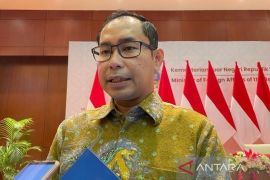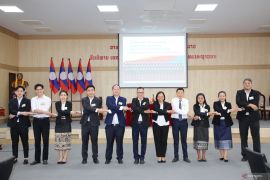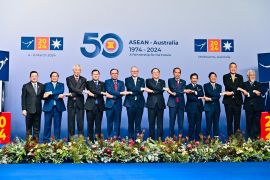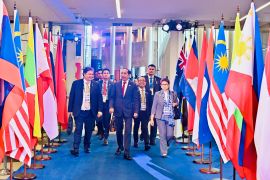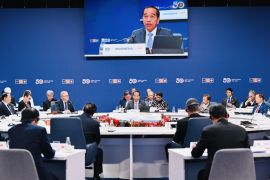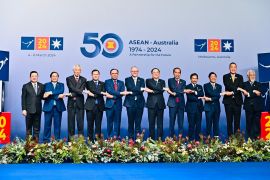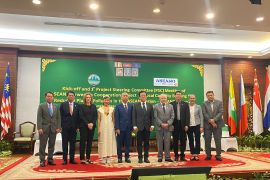The process of democratic transition is certainly necessary to reflect the wishes and aspirations of the Libyan people as a whole,"Jakarta (ANTARA News) - ASEAN member countries always consistently emphasize the need to protect and ensure the safety and security of the civilian citizens of Libya.
According to a press release from the Ministry of Foreign Affairs received by ANTARA, here Monday, during the crisis in Libya, ASEAN member countries continued to follow closely developments in Libya which were now entering a very important and decisive transition phase.
Therefore, the Association of Southeast Asian Nations also stressed the crisis in Libya could only be resolved through political processes that would enable the Libyan people to determine their own future.
Besides that, the international community, including the United Nations (UN), should be able to create conditions conducive to protect civilians in Libya and initiate the political processes.
"In this regard, ASEAN member countries support the on-going efforts involving the National Transitional Council to promote reconciliation and build a democratic and stable Libya in accordance with the aspirations and wishes of the Libyan people," the statement said.
Previously, the Indonesian government through the Minister of Foreign Affairs Marty Natalegawa also expressed support for a peaceful democratic transition process in Libya.
"Indonesia supports the National Transition Council effort in Libya by carrying out a peaceful democratic transition process," said Marty Natalegawa, Saturday (Sept 3).
"The process of democratic transition is certainly necessary to reflect the wishes and aspirations of the Libyan people as a whole," added Marty.
The Indonesian government`s position is also consistent with its three national principles in dealing with Libyan affairs from the very beginning.
The three Indonesian national principles are protection of civilians in Libya, and situation that can only be solved through a political process that provides the opportunity for the Libyan people to determine their own future, and asks the international community especially the United Nations (UN) to develop a conducive condition in assisting civilian protection and a peaceful political process.(*)
Editor: Aditia Maruli Radja
Copyright © ANTARA 2011
